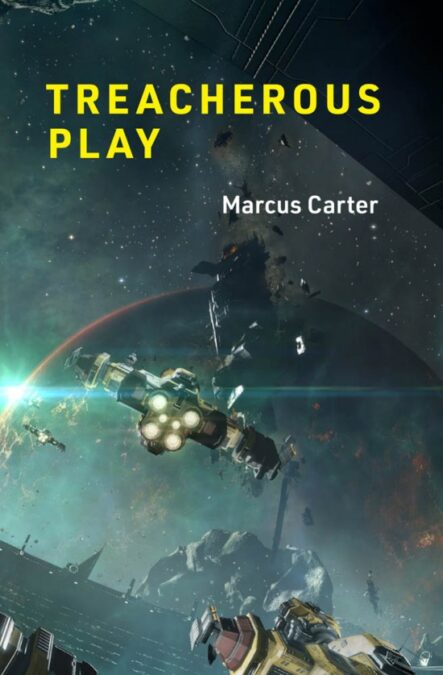
Rethinking trust: can we play at betrayal?
Games that are deliberately designed to enable or invite betrayal are extremely rare.
So Long Sucker is a simple bargaining game designed in the 1950s by game theorists, including Nobel Prize–winning economist John Forbes Nash, of A Beautiful Mind fame. Negotiation and agreements are key to winning So Long Sucker, but just as in TV’s Survivor, betrayal is also an implicit necessity for having a chance of winning. Such was the intense emotional experience of playing that Nash nicknamed the game “F**k your buddy,” and fellow designer Martin Shubik later recalled “married couples going home in separate cabs” after playing.
But why? Of all the outrageous and violence things that seem totally appropriate to do in games, why is treacherous play so polarising? Why is the emotional experience so exceptional?
In my research into transgressive play, I studied games that involve Treacherous Play, the lawful use of deception to betray another person in a multiplayer game by choice. This is play like, yelling “Friendly! Don’t shoot!” when you encounter another player in DayZ, but burying an axe in their head when they turn around; promising another player in Survivor that you will take them to the final three, but then writing their name down at the next tribal council; and being a productive member of an EVE Online corporation while selling military secrets to its enemies.
What is fascinating about this unusual and provocative style of play is what it reveals about the assumptions we have about the relationship between trust and play.
Is betraying someone in a game, when you don’t have to, ethical? What makes play ethical at all?
Any form of competitive game involves a form of violence against an opponent, albeit in highly abstracted form. In a strict Kantian sense, this means that all forms of competition are morally wrong, but as philosopher C. Thi Nguyen and games researcher Jose Zagal point out, some forms of competition in games are clearly ethical. They resolve this tension by connecting this violence to what Bernard Suit calls the ‘lusory goal’: the in-game goal we establish that is contingent on a series of ‘unnecessary’ obstacles. The struggle against these obstacles is what we desire from competitive games. Thus, we can understand the violence of competition in multiplayer games as being contingent on the way the game’s design aligns my mere violence with your desire for struggle.
Betrayal is counterintuitive from this perspective because moments of betrayal are so harsh, at times cruel and unfair, and the experience so negative. Can that really be part of our goal when playing a game? Yes! But only when within the rules, and when it fits into the coherent harsh and brutal atmospheres of these games.
What treacherous play highlights is that the opportunity to safely experience these aspects of humanity is appealing. Perhaps a more interesting conclusion would be that betraying close friends in treacherous games is unethical, but this doesn’t mean that treacherous play isn’t play and shouldn’t be an experience designed into some multiplayer games. What makes treacherous play feel unethical is precisely why it is an interesting form of play, which speaks to the grand potential for games to provide us the opportunity to explore the whole picture of human emotions.
The ethics and experience of “treacherous play”: an exploration of three games that allow deception and betrayal—EVE Online, DayZ, and Survivor.
Deception and betrayal in gameplay are generally considered off-limits, designed out of most multiplayer games. There are a few games, however, in which deception and betrayal are allowed, and even encouraged. In Treacherous Play, Marcus Carter explores the ethics and experience of playing such games, offering detailed explorations of three games in which this kind of “dark play” is both lawful and advantageous: EVE Online, DayZ, and the television series Survivor. Examining aspects of games that are often hidden, ignored, or designed away, Carter shows the appeal of playing treacherously.
Dr Marcus Carter is the author of Treacherous Play, available in February from the MIT Press.
Image: Fredrick Tendong
Marcus is a Senior Lecturer in Digital Cultures at The University of Sydney, and a recipient of the University’s SOAR fellowship in 2018.
Share
We believe in open and honest access to knowledge. We use a Creative Commons Attribution NoDerivatives licence for our articles and podcasts, so you can republish them for free, online or in print.








